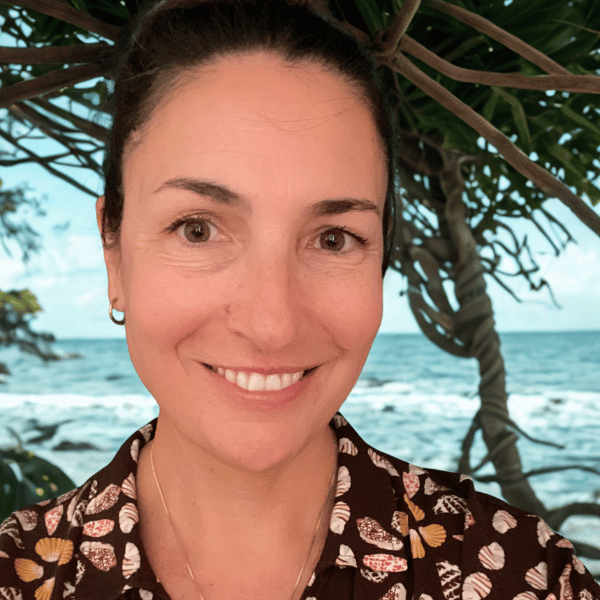
Individual Therapy For Addiction Treatment in Maui, Hawaii
Individual therapy is a form of treatment where a person works one-on-one with a trained therapist to address personal issues and challenges. This type of therapy provides a private, safe, and supportive environment for individuals to explore their thoughts, feelings, and behaviors. The therapist and client collaborate to set goals, identify problem areas, and develop strategies to achieve positive change.
In the context of addiction recovery, individual therapy focuses on understanding the underlying causes of substance use disorders and developing personalized treatment plans. This approach allows for tailored interventions that address the unique needs of each individual, promoting a more effective and sustainable recovery process.
How Can Individual Therapy Help Address Substance Abuse Disorders?
Individual therapy is a crucial component in treating drug abuse and substance use disorders, offering several key benefits in the recovery journey:
Personalized Attention
Individual therapy provides a level of personalized attention that is essential for understanding and addressing the complexities of addiction. Therapists can delve deeply into the individual’s history, experiences, and specific triggers, creating a customized treatment plan that addresses the root causes of substance use.
Identifying Triggers and Coping Strategies
Therapists work with clients to identify the triggers and underlying issues that contribute to their addiction. By understanding these factors, individuals can develop effective coping strategies to manage cravings and avoid relapse. Techniques such as Cognitive Behavioral Therapy (CBT) and Dialectical Behavioral Therapy (DBT) are often employed to help clients reframe negative thought patterns and build healthier behaviors. DBT also helps in developing communication skills necessary for maintaining healthy interpersonal relationships.
Addressing Co-occurring Disorders
Many individuals with substance use disorders also struggle with co-occurring mental health conditions such as anxiety, depression, or trauma. Substance abuse treatment provides the opportunity to address these issues simultaneously, ensuring a comprehensive approach to recovery. By treating both the addiction and any co-occurring disorders, therapists can help clients achieve better overall mental health and well-being.
Building a Strong Therapeutic Relationship
The one-on-one nature of individual therapy allows for the development of a strong, trusting relationship between the therapist and the client. This relationship is critical for fostering a sense of safety and support, enabling clients to be open and honest about their struggles. A strong therapeutic alliance can significantly enhance the effectiveness of the treatment and contribute to long-term recovery.
Benefits of Individual Therapy
Individual therapy offers numerous benefits for those recovering from addiction and substance abuse. Some of the key advantages include:
Confidentiality and Privacy
Flexibility and Adaptability
Focused and Intensive Treatment
Empowerment and Self-Awareness
Addressing Relapse Prevention
Integrating Individual Therapy with Other Treatment Modalities
At Mana Recovery Center, we recognize that effective addiction recovery often involves a comprehensive approach that integrates various treatment modalities. Individual therapy is a crucial component, but it works best when combined with other therapeutic and support services.
Formal therapy groups and support groups play a significant role in this comprehensive treatment approach. These structured gatherings, led by trained professionals, provide insight, guidance, and foster healthy connections and social skills among participants, making them as effective, if not more so, than individual therapy in promoting recovery.
Our holistic treatment approach includes integrating individual therapy with group therapy, family counseling, and educational workshops. This combination ensures a well-rounded recovery experience, addressing different aspects of addiction and personal growth. By blending individual therapy with these additional services, clients receive a multifaceted treatment plan that supports their overall well-being and enhances their chances of long-term success.
The Role of Family in Individual Therapy
Family involvement can play a significant role in the success of individual therapy for addiction. At Mana Recovery Center, we emphasize the importance of family support and involvement in the recovery process. While individual therapy focuses on the client’s personal journey, involving family members can provide additional layers of support and understanding.
Family therapy sessions are designed to address the impact of addiction on relationships and to foster healthier communication and dynamics. By including family members in the therapeutic process, we help to build a strong support system that reinforces the client’s recovery efforts and promotes a healthier, more supportive home environment.
Mana Recovery Center Offers Individual Therapy for Recovery
Located in the serene and picturesque island of Maui, Hawaii, Mana Recovery Center is dedicated to providing comprehensive addiction treatment that incorporates individual therapy as a core component. Our tranquil setting offers an ideal environment for healing and recovery, away from the stresses and distractions of everyday life.
Our Approach to Individual and Cognitive Behavioral Therapy
Personalized Treatment Plans
Comprehensive Care in a Tranquil Setting
Supporting Long-Term Recovery
A Compassionate and Experienced Team
How to Get Started with Individual Therapy for Addiction Treatment
Getting started with individual therapy at Mana Recovery Center is a straightforward process designed to make your transition into recovery as smooth as possible. To begin, you can reach out to our admissions team, who will guide you through the initial steps. This typically involves a comprehensive assessment to understand your specific needs and goals.
During the assessment, our team will discuss your treatment options and develop a personalized plan that aligns with your unique situation. We aim to make the process as comfortable and welcoming as possible, ensuring you feel supported every step of the way. Once your treatment plan is established, you’ll be introduced to your therapist, and individual therapy sessions will begin.
Experience Healing at Mana Recovery Center
If you or a loved one is struggling with addiction, individual therapy at Mana Recovery Center in Maui, Hawaii, can provide the personalized care and support needed for a successful recovery. Our serene environment, experienced therapists, and comprehensive treatment plans make us a premier choice for addiction recovery. Contact us today to learn more about our programs and begin your journey to healing and sobriety.


